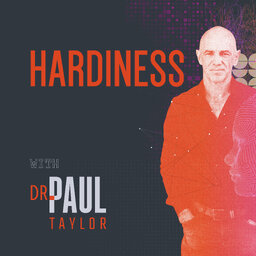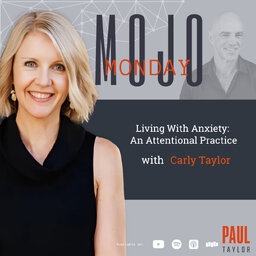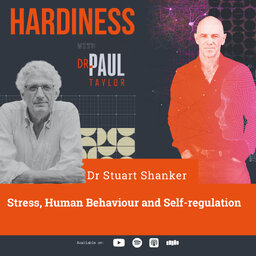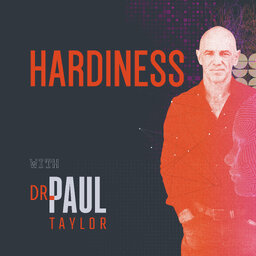Attentional Control: The Secret Weapon for High Performance with Dr. Haley Perlus
In this engaging conversation, Dr. Haley Perlus and I dive into the powerful world of sports psychology and its transformative techniques that can be applied to everyday life. Dr. Haley Perlus, an acclaimed sports psychologist, shares her expertise on overcoming mental blocks, optimising performance under pressure, and maintaining focus—insights that are valuable not only for athletes but for anyone looking to enhance their personal and professional lives.
What You'll Learn:
- Embracing Pressure: Understand how pressure and stress can be harnessed as performance enhancers in both sports and business.
- Mental Blocks: Discover the most common mental blocks experienced by athletes and how these can be overcome with practical tools and environmental changes.
- Focus and Attention: Learn about attentional control and how maintaining focus can lead to peak performance.
- Routines and Recovery: Explore the importance of pre-performance routines and post-performance debriefs as essential components for sustained success.
- Resilience: Gain insights into bouncing back from failure and setbacks with resilience training and acceptance of imperfection.
Key Takeaways:
- Pressure as a Privilege: Pressure can be a sign of self-belief and alignment with your values; learn to see it as an opportunity for growth.
- Mental Toolbox: Equip yourself with practical psychological tools such as visualisation, symbolic imagery, and controlled breathing to manage stress and optimise performance.
- Process Over Outcome: Focus on the process rather than the outcome. This shift in focus prevents distraction and allows for greater success and fulfillment.
- Attention Training: Deliberately train your attention to improve focus amidst distractions, strengthening your ability to concentrate effectively.
- Resilience and Recovery: Accept failure as a part of the journey and strive to become the best at recovering quickly and effectively from setbacks.
Resources:
- Book: Personal Podium by Dr. Haley Perlus offers valuable strategies for building a mental toolbox and effectively applying sports psychology techniques to daily life.
- Visit Dr. Haley Perlus' Website: For masterclasses, articles, and coaching opportunities.
Support and Share:
If you found this episode valuable, consider subscribing, rating, and leaving a review on your preferred podcast platform. Your support helps us reach more people with important conversations like this one.
Share this episode with someone who can benefit from a renewed perspective on health, parenting, or emotional resilience. Join the conversation and help spread awareness about the importance of resilience in facing life's uncertainties.
00:49 Journey into Sports Psychology
03:03 Pressure and Performance
04:19 Overcoming Mental Blocks
11:47 Harnessing Stress for Success
19:35 The Importance of Routines
26:55 Process vs. Outcome
31:57 Striving for Perfection vs. Demanding Perfection
32:38 The Art of Recovery
33:43 Learning from Failures
35:20 Techniques for Quick Recovery
37:23 Body-Mind Techniques
42:04 Training Focus and Attention
59:32 Mental Toolbox for Performance
In 1 playlist(s)
Hardiness with Dr Paul Taylor
Host Dr Paul Taylor, a Psychophysiologist, Neuroscientist, Exercise Scientist, and Nutritionist inte…Social links
Follow podcast
Recent clips

Final proof that dietary advice for metabolic health needs to change: Wisdom Wednesdays
13:07

Living With Anxiety: An Attentional Practice with Carly Taylor
08:26

Stress, Human Behaviour and Self-regulation with Dr Stuart Shanker
1:13:05
 Hardiness with Dr Paul Taylor
Hardiness with Dr Paul Taylor